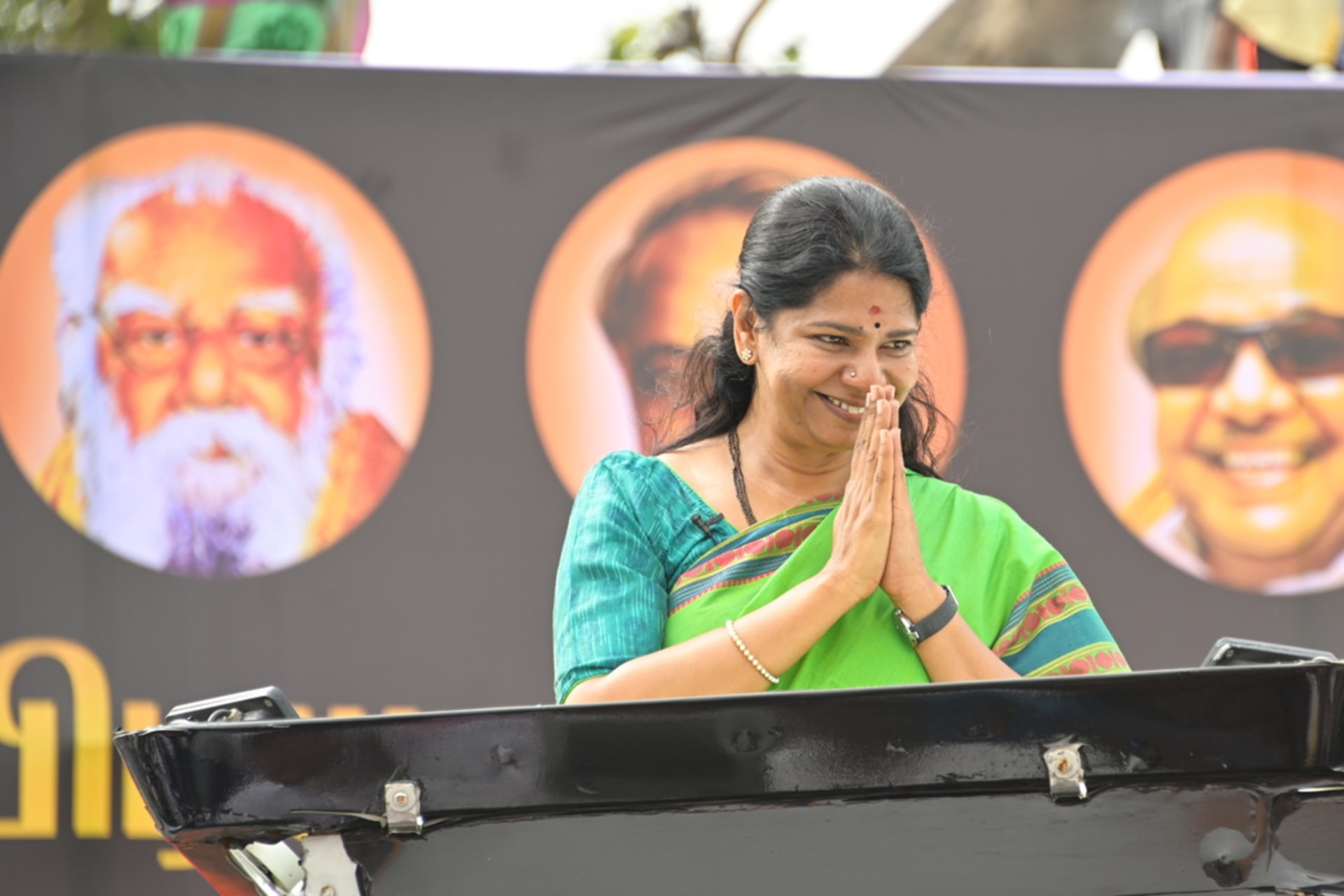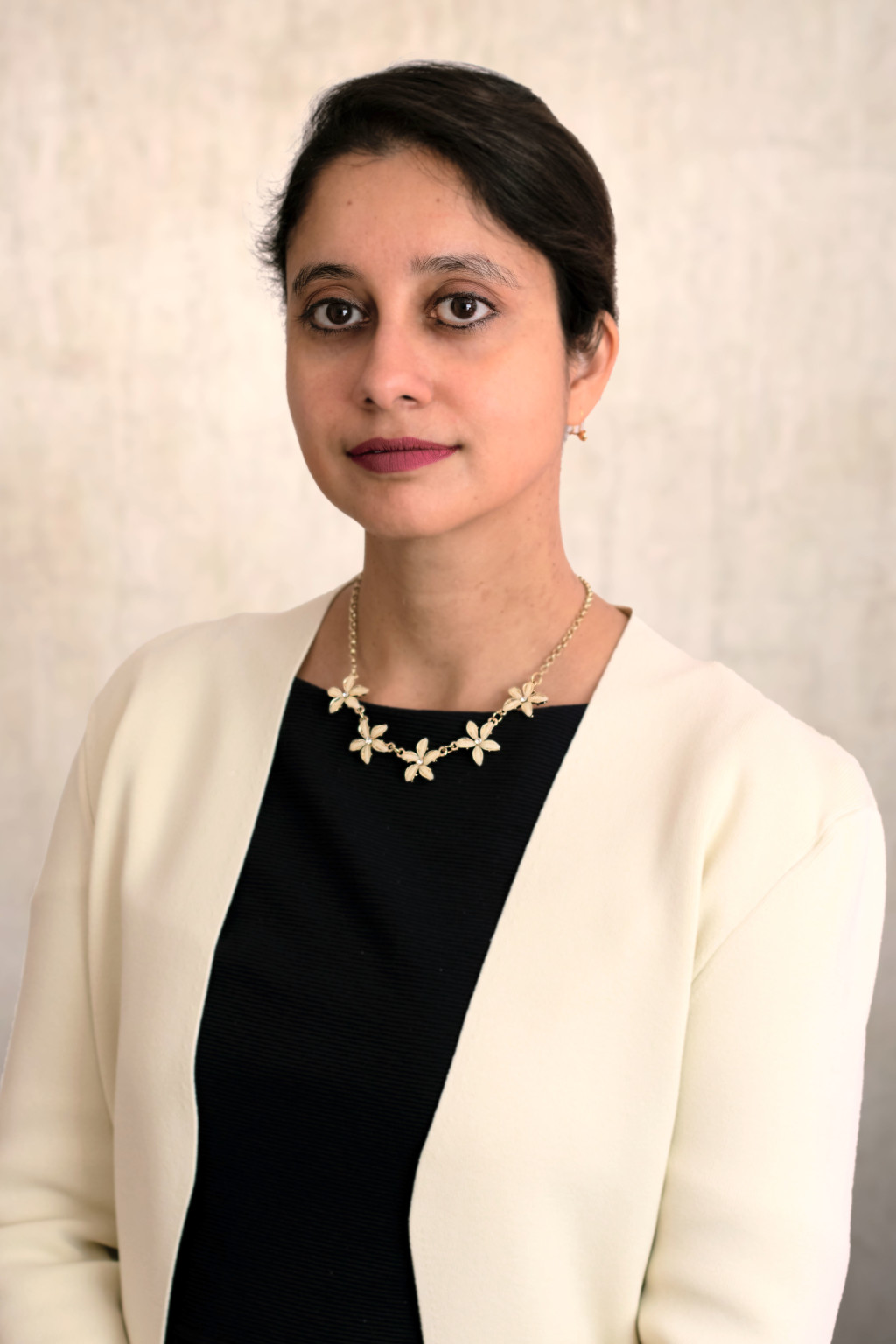Kanimozhi Karunanidhi: India’s Federal Government Is Eroding States’ Rights
Regional parties help protect India’s democracy, secularism, and diversity. Taking away states’ rights will only hurt the country.

By experts and staff
- Published
Experts
![]() By Manjari Chatterjee MillerSenior Fellow for India, Pakistan, and South Asia
By Manjari Chatterjee MillerSenior Fellow for India, Pakistan, and South Asia
This interview with Kanimozhi Karunanidhi is part of the Asia program’s Women’s Voices From the Indo-Pacific, produced by Senior Fellow Manjari Chatterjee Miller and Research Associate Zoe Jordan, featuring influential women in India’s political, economic, technological, and social fields whose work matters for the U.S.-India bilateral relationship and India’s relationship with the world.
Ms. Kanimozhi is a politician and the Lok Sabha Member of Parliament representing the Thoothukkudi Constituency. She has previously served two terms in the Indian parliament, and is also the Secretary of the Dravida Munnetra Kazhagam (DMK) Party’s Women’s wing. As a Member of Parliament she served in various Parliamentary Standing committees and select committees. Currently she is a Chairperson of the Standing Committee on Chemicals and fertilizers. She is also part of three Parliamentary standing committees, namely the Committee on Empowerment of Women, Committee on Public Undertakings, and House Committee. She was part of Select Committee for GST, the Constitution 123rd Amendment bill, 2017 and the Motor Vehicles Amendment Bill, 2016.
Ms. Kanimozhi is also a former journalist and poet. She has written Tamil poetry and translated Tamil poetry into English. She was previously a Sub-Editor for The Hindu and a Features Editor for a Singapore- based Tamil newspaper called Tamil Murasu. She believes in giving a voice to poor, marginalized and disadvantaged people.
What do audiences in the United States commonly misunderstand about the political system and state parties in India?
The basic framework of Indian political parties and how they are organized and contest elections is critical to understanding politics in India. U.S politics predominantly revolves around two parties and their policies. In India, however, there are multiple parties with just a few national parties, and many state parties. Even within the states, there are many parties with considerable clout in particular regions. My party, the Dravida Munnetra Kazhagam (DMK) in the state of Tamil Nadu, embodies the regional aspirations, the regional identity of India. It represents a Tamil Nadu identity, a Tamil-speaking identity, that transcends caste, and it is a pioneer in pursuing greater power for states.
The relationship between the states and the union [federal] government can be contentious. We are now seeing the union government infringe constantly on states’ rights. For example, the Bharatiya Janata Party (BJP)-led union government has carved the Indian state of Jammu & Kashmir into two Union Territories, now governed from New Delhi. I think the people of the state have to decide what they want, if they want their state divided or not. I don’t think the union government should be deciding that. The farm laws of last year, which were eventually withdrawn, de-regulated agriculture. The Indian Constitution mandates agriculture to be under the purview of Indian states, and the union government does not have the right to unilaterally take decisions on state subjects. The BJP government thinks that India needs one language, Hindi, while the DMK believes that you cannot impose Hindi on a country with so many regional languages, and if you want communication with the rest of the country and world, then English should be the language that links the country. Being Indian is not learning Hindi. Union policies like these chip away at states’ rights.
What are the most consequential factors in state politics that you think can play a role in India’s relationship with the United States or world in the next 3-5 years?
In recent years, state governments have had an increasing role in attracting overseas investment. A few cabinet ministers of the Tamil Nadu government are planning to visit the United States soon. The DMK government is concentrating on industry and infrastructure building, which supports investment. We have always believed in the ease of doing business but also in a sustainable and inclusive model of development.
In the next three to five years, in the post-pandemic world, it is important to build back small businesses and find export-linkages for indigenous manufactures. In particular, I think technology, and especially artificial intelligence and information technology are sustainable industries that have a lot of potential for international investment, especially in Tamil Nadu. It is also important for India to build the infrastructure to revive its domestic manufacturing sector. There should be a focus at the same time on environmental sustainability. The DMK has been fighting with the union government to ensure we do not bring in industries destroy the environment. This is especially important in Tamil Nadu because of the recent IPCC Climate Change report’s warning that the capital city of Chennai, as a coastal city, will be severely affected. In all these sectors, the India-United States relationship will play a key role.
Both countries need to work together to strengthen democratic forces given their status as leading democratic countries. Both have a moral duty to protect the rights of the citizens from social media companies which pose a great threat to democracy.
What inspired you to pursue your career path? How does your personal background inform your work?
My lifelong inspiration has been my father, and with his encouragement, I entered politics, at a time when my party wanted me to play a part in shaping the political discourse. Coming from a political family, I had an opportunity to see and experience politics closely. I have seen how political will can translate into change, transform lives, and sometimes even entire societies. I have seen the ups and downs of politics while growing up. Right from my days in school, I saw my father being targeted for taking a political stand. When he was chief minister of Tamil Nadu in 1976 he opposed the Emergency imposed on India by the union government. For the crime of defending democracy, the union government invoked emergency powers to dissolve his state government. I learnt at that time that taking a political stand can have very bad consequences, and that you need to have the will to persist, regardless of the odds.
Can you speak to the status of women in the work that you do?
In politics, although India has given political rights to women since its independence, women’s political participation is very low. This is because of the inherent patriarchal attitude at the family and societal levels. Female members of parliament in India constitute only 14.39 percent of the total number. The latest National Family Health Survey shows that in India, for every 1,000 men there are 1,020 women. We have a situation where there are more women than men demographically, but very low women representation rates, especially at the highest law-making body in the country. In order to rectify this, we have been constantly demanding 33 percent reservation for women in parliament, both at the union level and state level. This would compel parties to put up more women candidates in elections.
[In India], there are more women than men demographically, but very low women representation rates, especially at the highest law-making body in the country.
The BJP government stated in its own election manifesto that it would pass this bill, but they have not brought it into the list of businesses before Parliament. I don’t understand why they have not done that. While there are many bills which both opposition parties, and the people, are against, this bill enjoys widespread support—and except for perhaps one or two parties in parliament— everyone wants it to be passed.
When you look at the role of India in South Asia today, what concerns you most or brings you hope? What are the most pressing priorities for you and your colleagues?
Regional politics is the driving force ensuring the fabric of India’s democracy, secularism, and diversity is protected. It is the regional parties which, to a great extent, ensure that voices of dissent are still protected. India is a union of states, it is not a single unitary government. This is what regional parties like mine are trying to reinforce. Taking away states’ rights will not keep India as a country together. Regional identities have to be preserved along with the national identity.
Regional politics is the driving force ensuring the fabric of India’s democracy, secularism, and diversity is protected.
India’s neighborhood of South Asia presents a challenging geopolitical situation. Against the backdrop of the post-Covid global economic revival, the Sri Lankan economic crisis has become a cause for concern. India has provided humanitarian support to Sri Lanka constantly since the start of the crisis. The Tamil Nadu government has also requested the Ministry of External Affairs to send supplies and support to the Sri Lankan government directly from Tamil Nadu as a goodwill gesture. What happens in Sri Lanka matters for Tamil Nadu [the Indian state closest to the country] — if there is a refugee problem, this is the first state the people will come to. The union government has to have dialogue with the states that have international borders. Unfortunately, that is not happening as much as it should.
Climate change poses a huge risk to all the countries in South Asia. In the past, there has not been cooperation in South Asia, mainly because of some countries’ reluctance to curb cross-border terrorism. But climate change could be an opportunity for all South Asian countries to come together and forge a sustainable development path for the entire region. India can become the voice that brings countries together, and it should start playing a greater leadership role in the region.
